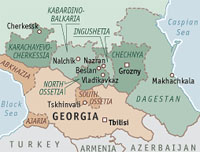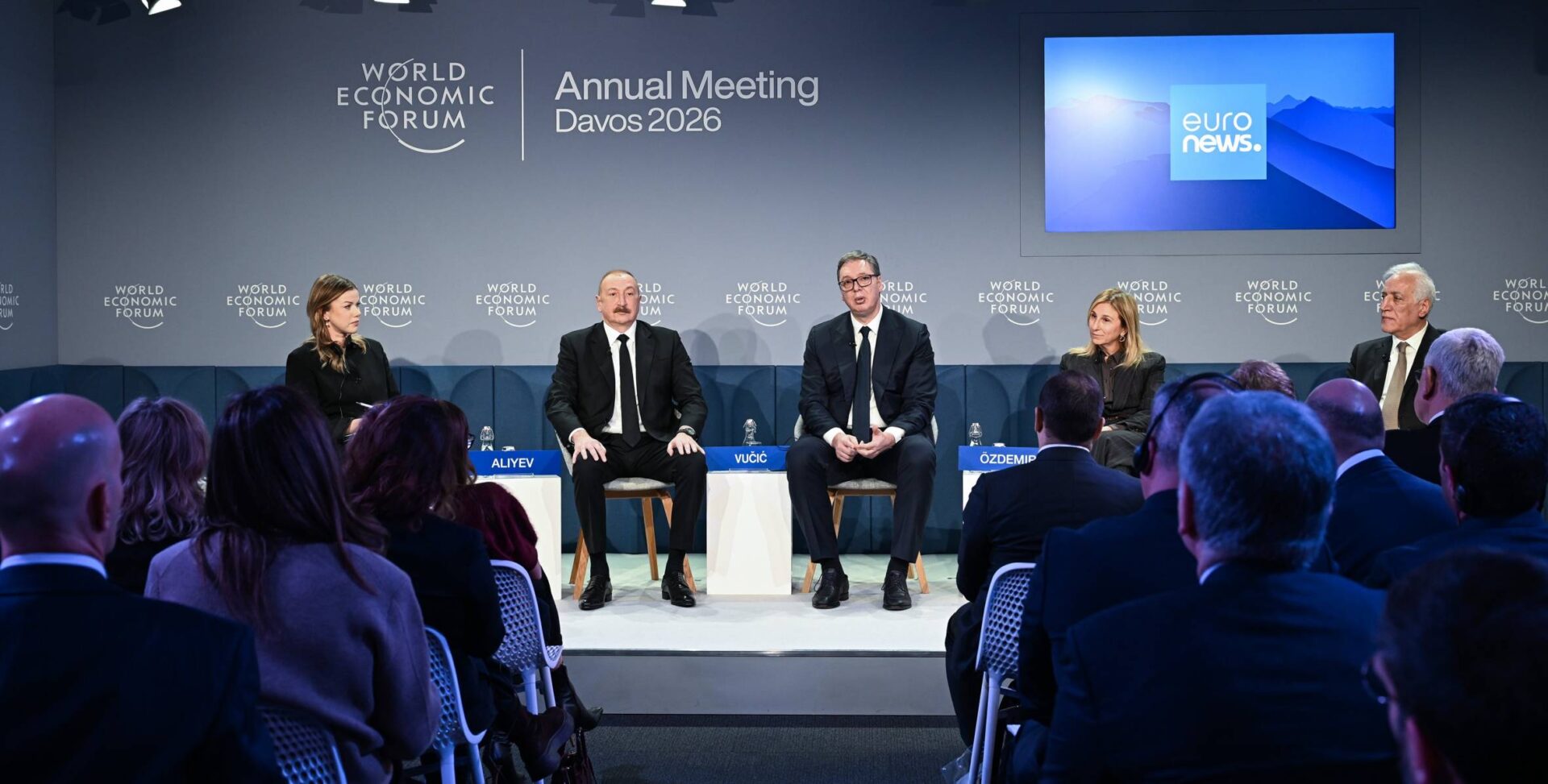
RUSSIAN AUTHORITIES PRESS AHEAD WITH PLANS TO COMBINE ADYGEYA AND KRASNODAR KRAI
RUSSIAN AUTHORITIES PRESS AHEAD WITH PLANS TO COMBINE ADYGEYA AND KRASNODAR KRAI
Plans to unify two Caucasian regions of Russia, Adygeya and Krasnodar Krai, have seriously aggravated the situation in Adygeya, the most stable national republic of the violent North Caucasus.
On April 23, about 10,000 people participated in a protest rally in Maikop, the Adygeyan capital. The rally was organized by several civic organizations. Under the banners of “Long Live Adygeya!” and “Let It Be a Republic!” speakers read aloud telegrams of support from different Adygei and Cherkess (the two minorities belong to the same ethnic group and are very close in language and customs) diaspora groups from the United States, Germany, Israel, Turkey, Syria, and Jordan (regnum, April 23). The Union of Public Organizations was formed on the same day “to coordinate efforts to protect the constitutional status of the Republic of Adygeya” (Nezavisimaya gazeta, April 26).
On December 29, 2004, Alexander Tkachov, the governor of Krasnodar Krai, told a press conference on that it would be economically feasible to unify Adygeya and Krasnodar Krai (yufo.ru, December 29, 2004). This statement immediately drew strong protests from the Cherkess Congress and Adyge Khase, civics organizations with deep roots in Adygeya. Cherkess Congress Chairman Murat Berzegov declared that his group would to appeal to the large Cherkess communities in Turkey, Jordan, and the Middle East to help block any moves toward unification.
Adygeyan authorities supported these protest activities. Khasret Sovmen, the president of the republic, declared that abolishing Adygeya would be “a political mistake” that would further destabilize the Caucasus (Interfax, January 14).
This strong response silenced the unification advocates for a while. However, on April 1, Murat Akhedjakh, Krasnodar Krai’s vice-governor for domestic policy, said that polls conducted by a “Social Research Center” indicated that up to 80% of Adygeyan residents favored unification with Krasnodar, including 50% of the Adygeis and 90% of the Russians (Interfax, April 1).
This interview fanned the flames of the dispute. Then on April 19, Izvestiya-Ug published an interview with Anatoly Odeychuk, the federal inspector for Krasnodar Krai and Adygeya. Odeychuk previously was the inspector for Krasnodar Krai only until January, when Adygeya was added to his jurisdiction. Some observers regard this move as the first step towards possible unification (Newsru, April 22). In a recent interview Odeychuk not only supported the idea of merger, but he sharply criticized the situation in the republic. Odeychuk called Adygeya “an ethnic republic where only force, cruelty, and strong authority are respected” (Izvestiya-Ug, April 19).
In addition, Alexander Veshnyakov, the chairman of the Russian Central Election Committee, said that he also knew of consultations on the Adygeya- Krasnodar issue.
Faced with such a massive onslaught, Adygeya struck back. The government of the republic appealed to Dmitry Kozak, Russian President Vladimir Putin’s special envoy to the Southern Federal District, to withdraw Odeychuk. Adyge Khase and the Cherkess Congress also issued a statement demanding that the federal inspector resign (Nezavisimaya gazeta, April 22). The Adygeyan diasporas backed the organizations’ demands. Kuban Khatukai, a leader of the diaspora in the Netherlands, sent a letter to the president of Adygeya expressing his support for the sovereignty of the republic (Nezavisimaya gazeta, April 22).
Abrek Chich, spokesman for the President of Adygeya, warned of more unrest in the region. “The situation is getting more and more complicated every day. There are meetings, protest actions. There are young people going around Maikop in cars waving Adygeyan flags” (regnum, April 22). Chich also disavowed Vesnyakov’s statement about ongoing unification consultations between Adygeyan authorities and Krasnodar officials (Interfax, April 21).
At the same time, various independent sources have conducted their own surveys to find what people in Adygeya really think about the merger. According to a poll organized by the Caucasus Times in Maikop, 39% said that they would vote against the unification; 22% supported this idea; 21% were “likely to support it”; and 12% were “likely not to.” Adding together the negative responses, this survey indicates that 51% of the residents of the Adygeyan capital oppose a merger. This result contradicts the numbers cited by Akhedjakh, the Krasnodar Vice-Governor.
The stiff resistance from the Adygeis forced the Krasnodar and federal authorities to pull back. According to Svetlana Zhyravleva, spokesperson for the Krasnodar governor, “No concrete steps have been taken by the administration of Krasnodar Krai towards developing the idea of unification” (Nezavisimaya gazeta, April 21).
However, the struggle continues. The problem is that most of the population of Adygeya is ethnic Russian, and the Kremlin — undoubtedly the origin of the unification scheme — wants to use this demographic factor to grab the republic to merge it with Krasnodar region.
On April 28, Tkachov said that he could consider the unification issue if the people of the two regions decide that it would be better for them to be together, first of all for economic reasons (Caucasus Times, April 28). The Adygeyan authorities insist that neither local residents nor any civic organization wants to initiate a referendum on a possible merger. The President of Adygeya’s Press Office added that the persistent discussions of this subject were inspired by authorities at a higher level (Caucasus Times, April 28). Merger advocates have not yet responded to this statement.


